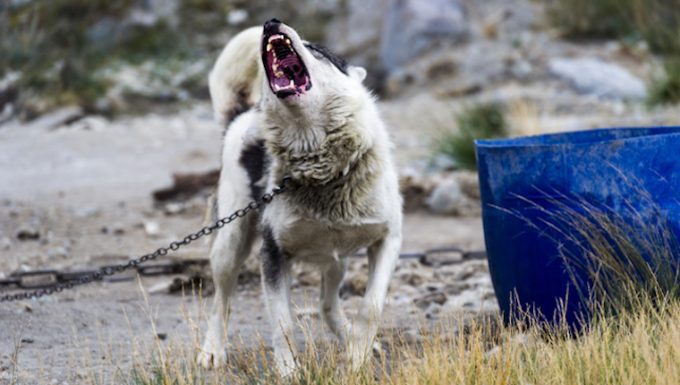Hyperandrogenism in dogs is caused by elevated male sex hormones. Usually, the condition affects dogs who have not been spayed or neutered.
A dog that produces too many male sex hormones will suffer from skin problems and hair loss. Additionally, aggressive behavior is a sign of the condition.
Furthermore, certain breeds suffer from the condition more than others. For instance, Chow Chows, Akitas and Pomeranians often develop it.
Female dogs can develop the condition. But it is most common in male dogs.
If you see the signs of hyperandrogenism in your dog, then get to a veterinarian for a proper diagnosis and treatment.
Here’s what you should know about the symptoms, causes, and treatments for the condition.
Symptoms Of Hyperandrogenism In Dogs
Hyperandrogenism in dogs produces a range of symptoms. Accordingly, some of the most common symptoms include:
- Aggressive behavior
- Hyperpigmentation
- Oily skin
- Hair loss
- High sex drive
- Dandruff
Additionally, female dogs can develop the condition. As a result, they can experience the following symptoms:
- Vaginal infection
- Developing male characteristics
- Irregular cycles
Causes Of Hyperandrogenism In Dogs

Not being castrated is a main cause of the condition in male dogs. Furthermore, the following causes are also common:
- Tumors on the testes
- Tumors on the ovaries
- Cushing’s disease
Additionally, certain breeds of dog are at higher risk of developing the condition. Specifically, some of those breeds are:
- Akitas
- Pomeranians
- Keeshonds
- Poodles
- Chow Chows
- Siberian Huskies
- Samoyeds
Treatments For Hyperandrogenism In Dogs
Firstly, your vet will carry out a full physical exam. Secondly, blood and urine tests will be taken.
Generally, neurological tests will be carried out too. Other times, hormone tests can be used.
In general, a big part of confirming the condition is ruling out other underlying causes.
Usually, surgical neutering will cure the condition. Sometimes, growth hormones are also used.
In conclusion, hyperandrogenism can best be avoided by safely spaying and neutering dogs before they are adopted. You can read more about spaying and neutering myths and facts here.
Have you ever cared for a dog who suffered from the condition? How did your vet help your dog recover? Let us know in the comments section below.




